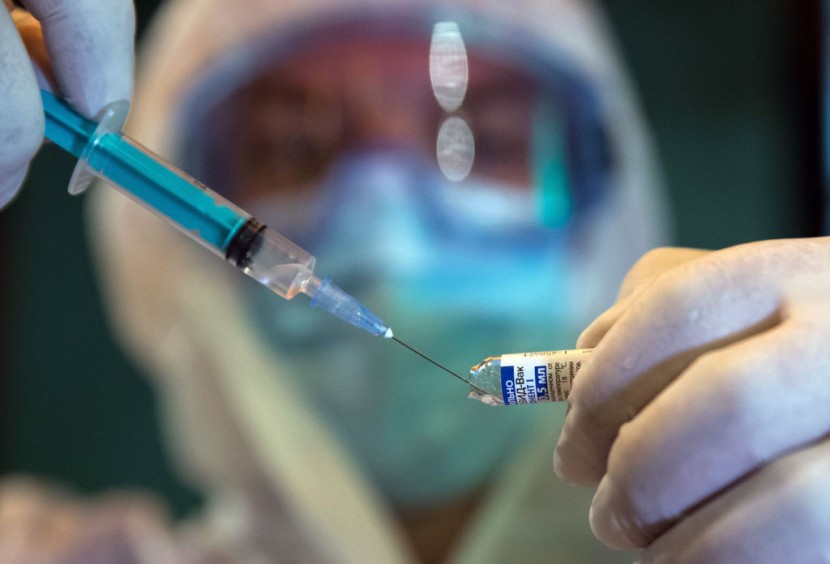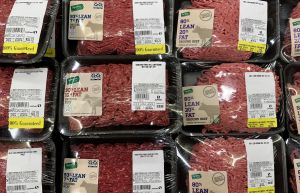
The Kremlin said on Tuesday that Russia would not be able to vaccinate 60 percent of its people against COVID-19 by the autumn as anticipated owing to low demand for the vaccine. This comes after the country reported the greatest number of daily fatalities from the virus.
The infectious Delta variant, which they believe accounts for roughly 90% of all new cases, and the unwillingness of many Russians to get vaccinated have been blamed by Russian officials for a recent spike in COVID-19 cases.
Health Minister Mikhail Murashko said at a government meeting that 23 million people have gotten at least the first dose of a two-shot vaccination, while Moscow Mayor Sergei Sobyanin said he aims to vaccinate up to 2 million people in the Russian capital over the next six weeks.
Russia's plan to combat COVID-19
On Tuesday, the government's coronavirus task group said that 652 individuals died of the virus in the past 24 hours. Since the outbreak began, Russia has recorded around 5.5 million COVID-19 cases.
Russian health officials said Tuesday that they plan to provide vaccine boosters each year as a herd immunity tactic incorporate new strategies for combating the COVID-19 pandemic in Russia.
The ministry guided the "unfavorable epidemiological situation of Russia" by giving people who contracted COVID-19 vaccine six months after their recovery and stimulating vaccination shots for those who have already received vaccination six months after their first dose, said Mikhail Murashko, Newsweek via MSN reported.
Murashko offered no data to justify the necessity for booster doses six months following the initial vaccination. Deputy Prime Minister Tatyana Golikova, however, referred to "international and Russian studies" to indicate that immunity for individuals recovering from the virus stays on average for six months and gradually decreases after 9 to 12 months.
Russia was one of the first in the world last year to announce and deploy a COVID-19 vaccine, although just a fraction of its 146 million people has ever been vaccinated. Murashko stated that at least a vaccine shot was obtained by more than 23 million, a little over 15 percent.
Russia's vaccination rates have risen in recent weeks, despite widespread vaccine apprehension and limited production capacity, after authorities in many regions made shots mandatory for employees in certain sectors, including government offices, health care, education, retail, restaurants, and other services industries. However, concerns of shortages in some Russian districts followed the surge in demand; and some experts have questioned whether Russia would have enough vaccinations to meet demand.
Read Also: Families and Experts Claim India Undercounted Real COVID-19 Deaths, May Reach 2 Million
Guatemala ask Russia to return money
Guatemalan Health Minister Amelia Flores said on Tuesday that the government has asked Russia to refund money previously paid for doses of the Sputnik V COVID-19 vaccine due to non-delivery amid Russia's aim to vaccinate residents yearly. In early April, President Alejandro Giammattei's government purchased $80 million for the delivery of 8 million COVID-19 vaccines.
According to the administration, it has only received 150,000 of those so far, even though COVID-19 infections in the Central American country have reached an all-time high. Per Reuters, President Vladimir Putin of Russia has bragged about the Sputnik V vaccination all over the world.
In March, he said that the nation struck deals with other countries to produce hundreds of millions of doses. However, Russia generated just a fraction of them; and its monthly output is far smaller than that of Pfizer and AstraZeneca.
However, Russia's Sputnik V vaccination against COVID-19 is 90 percent effective against the extremely infectious Delta variant of coronavirus. According to Straits Times, researchers previously discovered that the vaccine, which Russia has actively promoted overseas, was nearly 92 percent effective against the original type of coronavirus.
Related Article: Oxford University Scientists to Give Ivermectin Drug to COVID-19 Patients, Exploring If It Can Help Them Recover at Home
@YouTube
© 2026 HNGN, All rights reserved. Do not reproduce without permission.








